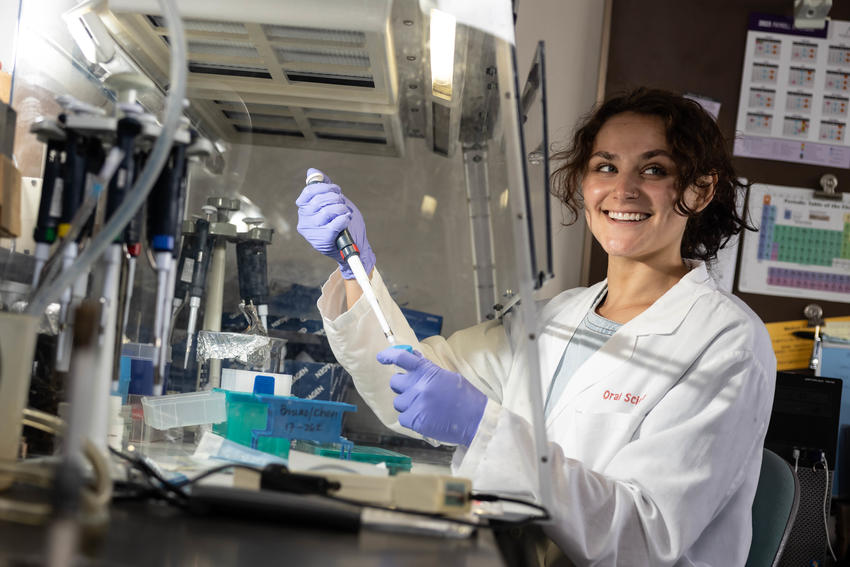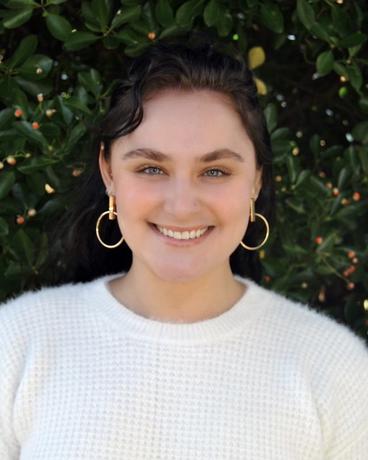Aitken receives AADOCR Student Research Travel Award

Sarah Aitken, DDS/PhD candidate at the School of Dentistry, received a 2024 American Association for Dental, Oral and Craniofacial Research (AADOCR) Student Research Travel Award.
Each year, the AADOCR offers the award to one student from each attending institution to support their travel to the AADOCR Annual Conference.

Aitken discovered a passion for research and molecular microbiology as an undergraduate student, when she studied Cryptococcus neoformans, “an opportunistic fungal pathogen of the central nervous system.”
After that experience, “I knew I was interested in pursuing a dual degree to combine my passions for clinical care, research and teaching through a career in dental academia,” she explained. A National Institutes of Health training fellowship reinforced that interest. “Working at NIH allowed me to see first-hand the importance of basic science research to clinical care,” she said.
The University of Minnesota was an easy choice for Aitken thanks to a “long history of innovative and interdisciplinary research.” Working with Bruno Lima, DDS, PhD, assistant professor of basic sciences, and Mark Herzberg, DDS, PhD, professor of basic science, “allows me to combine my interest in host-microbial interactions with my passion for oral science.”
Aitken studies the adhesin proteins in Streptococcus gordonii,”a commensal bacterium commonly found in the human cavity.” More specifically, she seeks to understand the mechanisms of surface attachment and the transcriptional regulation of the adhesins that help S. gordonii attach to the tooth and create dental plaque. Because the particular adhesin family she studies is found across the Streptococcus genera, Aitken’s findings could help understand attachment and regulation in a variety of infections. “Ultimately, this knowledge will help us better understand the role of bacterial adhesins in the complex processes of Streptococcal adherence, colonization and disease, so that therapeutic approaches can be developed that modify community development toward health,” she said.
At the AADOCR’s Annual Session, Aitken will present a talk called “Transcriptional Regulation of Antigen I/II Adhesins by a Two-Component System,” presenting “evidence of a TCS in S. gordonii that appears to transcriptionally downregulate AgI/II adhesin expression during biofilm formation on a tooth-like surface.”
The award will fund Aitken as she presents her research and participates in National Student Research Group sessions. In addition, the travel award will support Aitken attending the AADOCR Microbiology/Immunology Group Mini-Symposium for Young Investigators as part of the conference. A day-long mini-symposium for graduate students and early-stage investigators, this meeting “provides a platform to improve science communication, build future collaborations and engage in follow-up discussion that is normally not feasible during the general meeting sessions.”
Finally, thanks to the support of the grant, Aitken will now have the opportunity to attend the Streptococcal Biology Gordon Research Conference later in the year, allowing her to connect with other Streptococcal researchers, pursue collaborations, and share her research.
Aitken is grateful to have received the award, and looks forward to what it means for her research. “I feel very honored to receive this travel award,” she said, “and I am very excited to explore cutting-edge research and network with dentist-scientists at these upcoming conferences.”